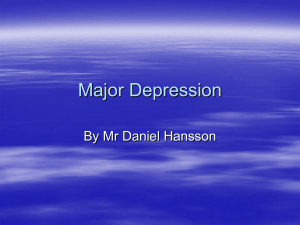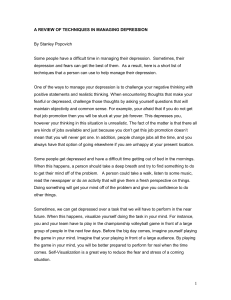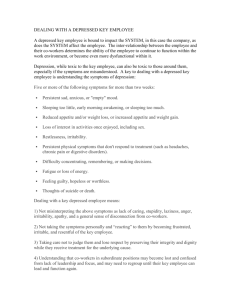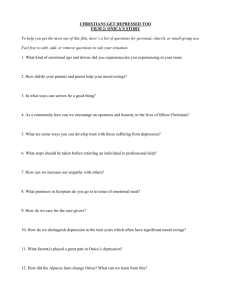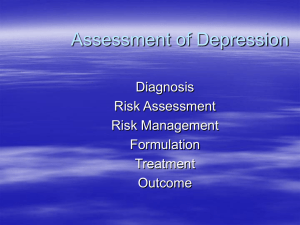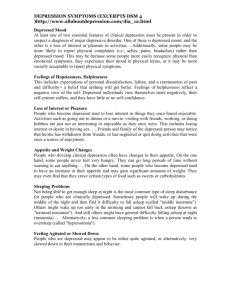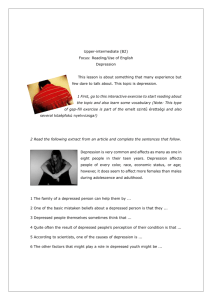Janie & Depression
advertisement
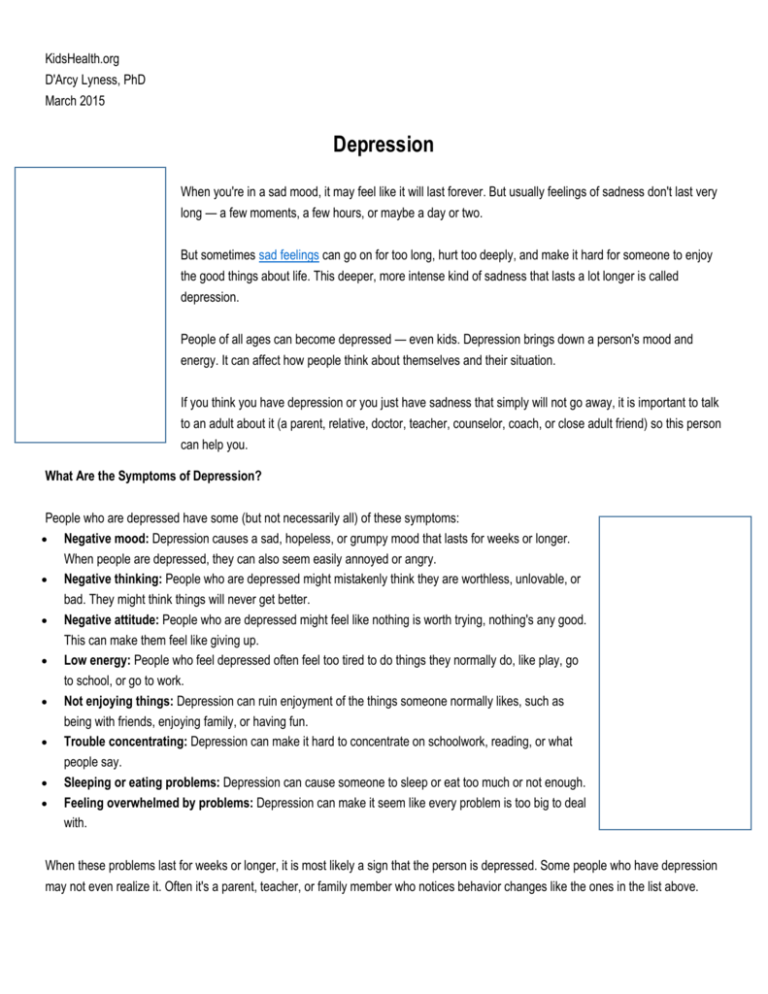
KidsHealth.org D'Arcy Lyness, PhD March 2015 Depression When you're in a sad mood, it may feel like it will last forever. But usually feelings of sadness don't last very long — a few moments, a few hours, or maybe a day or two. But sometimes sad feelings can go on for too long, hurt too deeply, and make it hard for someone to enjoy the good things about life. This deeper, more intense kind of sadness that lasts a lot longer is called depression. People of all ages can become depressed — even kids. Depression brings down a person's mood and energy. It can affect how people think about themselves and their situation. If you think you have depression or you just have sadness that simply will not go away, it is important to talk to an adult about it (a parent, relative, doctor, teacher, counselor, coach, or close adult friend) so this person can help you. What Are the Symptoms of Depression? People who are depressed have some (but not necessarily all) of these symptoms: Negative mood: Depression causes a sad, hopeless, or grumpy mood that lasts for weeks or longer. When people are depressed, they can also seem easily annoyed or angry. Negative thinking: People who are depressed might mistakenly think they are worthless, unlovable, or bad. They might think things will never get better. Negative attitude: People who are depressed might feel like nothing is worth trying, nothing's any good. This can make them feel like giving up. Low energy: People who feel depressed often feel too tired to do things they normally do, like play, go to school, or go to work. Not enjoying things: Depression can ruin enjoyment of the things someone normally likes, such as being with friends, enjoying family, or having fun. Trouble concentrating: Depression can make it hard to concentrate on schoolwork, reading, or what people say. Sleeping or eating problems: Depression can cause someone to sleep or eat too much or not enough. Feeling overwhelmed by problems: Depression can make it seem like every problem is too big to deal with. When these problems last for weeks or longer, it is most likely a sign that the person is depressed. Some people who have depression may not even realize it. Often it's a parent, teacher, or family member who notices behavior changes like the ones in the list above. Do you think Janie is depressed? Yes No Do you think Janie shows any signs of the symptoms listed in the article? Yes No If so, which one? _____________________________________________________________________________ Do you think Janie has anyone to help her deal with her problems? Yes No If so, who? ___________________________________________________________________________________ Based on your reading of Janie’s behavior and decisions following Joe’s death, do you believe Janie is depressed? Consider the responses you provided to the questions above, and use the RACE method to explain your thoughts by providing evidence from the article. _____________________________________________________ _____________________________________________________ _____________________________________________________ _____________________________________________________ _____________________________________________________ _____________________________________________________ _____________________________________________________ _____________________________________________________ _____________________________________________________ _____________________________________________________ _____________________________________________________ _____________________________________________________
